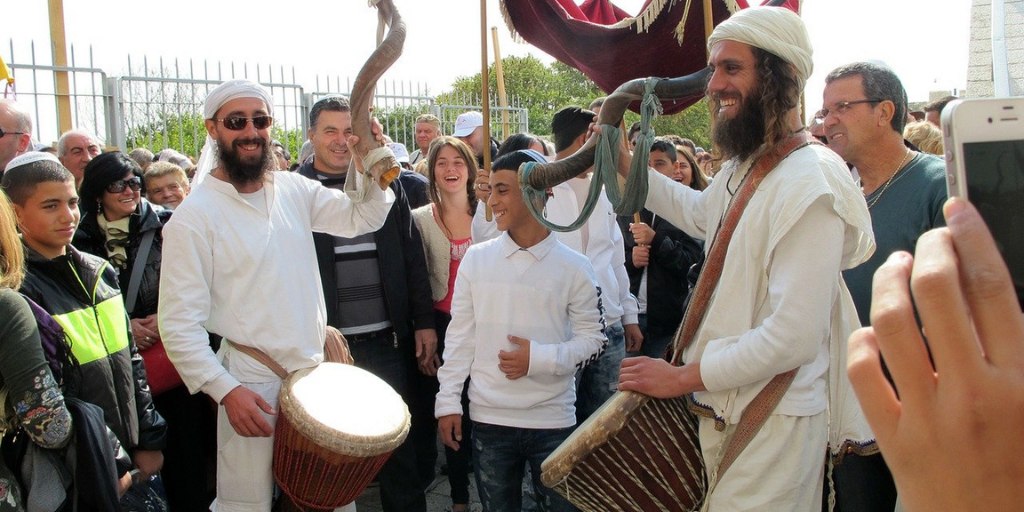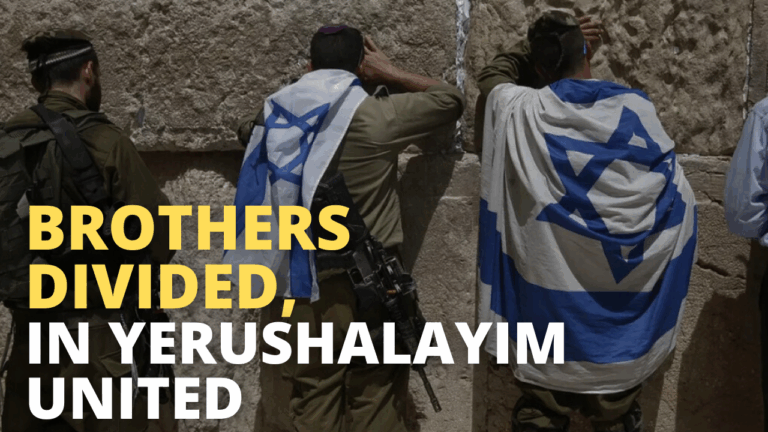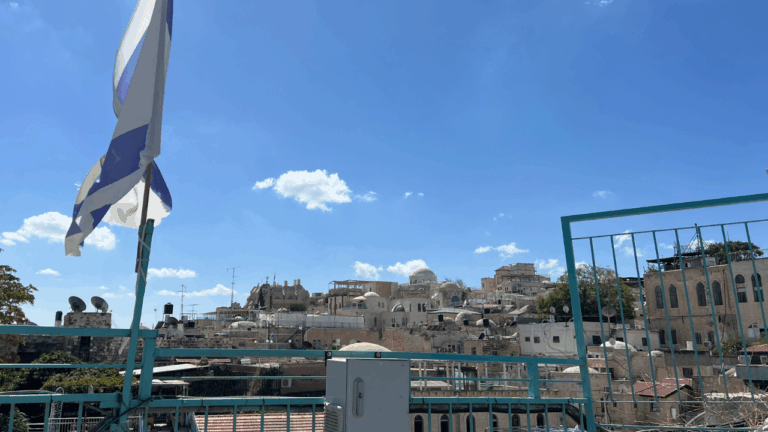Jerusalem of Fear and Joy
We generally think of simcha (joy) and yirah (fear) as mutually exclusive feelings. Experiencing fear or even the solemnity of an awe-inspiring event is not conducive to happiness and joy. However, the Torah teaches that this is not the case but posits that the highest levels of fear and joy can coexist and even strengthen each other. One clear expression of this idea is regarding the agricultural mitzvot that take place in Yerushalayim.
This week’s parsha opens with the mitzvah of Bikkurim. A Jewish farmer living in the Land of Israel must take his first fruits to the Beit HaMikdash every year to “give them” to God and thank Him for the ongoing blessing of Jewish history and the Land. The Mishna describes this procession to Yerushalayim as particularly joyous, filled with flutes, golden-tinged cow horns and crowns. The Torah itself highlights the joy of Bikkurim by concluding the ceremony: “Then, you shall rejoice with all the good that the Lord, your God, has granted you and your household you, the Levite, and the stranger who is among you.”
In a word, the trip to Yerushalayim and the time spent there fulfilling the mitzvah of Bikkurim was filled with joy and merriment.
This seems to be a study in contrasts with another time that the farmer brings his produce to Yerushalayim: the mitzvah of Ma’aser Sheni. Every first, second, fourth and fifth year of the shemitah cycle, the farmer must bring a tenth of his produce or the monetary equivalent thereof to Yerushalayim to eat the food there.
What is the purpose of this trip? Once again, the Torah itself states: “And you shall eat before the Lord, your God, in the place He chooses to establish His Name therein, the tithes… so that you may learn to fear the Lord, your God, all the days.” Tosafot explain that when a person is in Yerushalayim and sees the great service of the kohanim and studies the behavior of the righteous population of the city it will lead to a greater sense of fear of heaven.
So which is it? Does a person go to Yerushalayim to experience joy or fear? How can the Torah expect that the same farmer who makes two identical trips to Yerushalayim can learn both joy and fear?
The answer is that fear of a human being would be mutually exclusive to experiencing joy. But when one is in Yerushalayim and feels the palpable presence of God, these two emotions coexist and even complement one another. One must feel awe-inspired and fearful when standing before the All-Powerful. Simultaneously, though, a person is filled with the ultimate sense of meaning, purpose and, hence, happiness and joy. Yerushalayim that has the ability to connect a person with transcendence and enable him to experience the joy of Bikkurim and the fear of Ma’aser Sheni.



